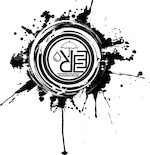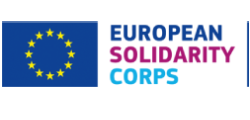The Footprints of the Time Thread

Esai en Roi
Anthokipoi Polichnis, Thessaloniki, Greece
Description
It is a common belief and contemporary strategy of behavioral change, to boost quality of life & sustainable environment campaigns through arts & culture. EERco is aiming to "quality of life" development by supporting European Solidarity Corps (ESC) projects related to Arts and Humanities. Many movements in art history have tried to change society as to support that art can play a big role in quality of life. In MACs compact 15days duration we 1) work on solidarity issues regarding traffic awareness and traffic accidents prevention 2) create a campaign relevant to the topic in natural environments inspired by victims or by personal witnessing or through relatives' or friends' experiences 3) campaign of traffic education; creation - implementation - diffusion.
Accommodation, food and transport arrangements
The specific offer reffers to volutneers with an evident necessity of short term volunteering. Each volunteer will be hosted to an apartment with or without room-mates depending the period, with all safety, hygiene & quality standards. Each volunteer is committed to return his apartment as it was received, without damages or missing objects. A social mentor will be responsible for food supplies & preparation, also supporting socialization. The transportation follows ESC guide 2024 rules. Monthly bus cards are provided. The green traveling is profoundly endorsed.
Training during the activity
Participants will be hosted will be able to receive EER certification as volunteers with advanced skills or youth workers/ leaders. Training opportunities are possible in topics as journalism, creativity and culture, healing arts, fine arts and education, fine arts and recreation (dance, theater, filming, music, painting, etc). This ESC project supports youth-work recognition through digital badges provision, after being trained and practicing accordingly.
Participant profile
Our target group is defined by young people have fewer possibilities than their peers. This can be for a variety of reasons: 1. Social obstacles: young people facing discrimination (because of gender, ethnicity, religion, sexual orientation, disability, etc.), young people with limited social skills or anti-social or risky sexual behaviours, young people in a precarious situation, (ex ) offenders, (ex ) drug addicts, young and/or single parents, orphans, young people from broken families, etc. 2. Economic obstacles: young people with a low standard of living, low income, dependence on social welfare system, long-term unemployed youth, homeless young people, young people in debt or in financial problems, etc. 3. Disability: young people with mental (intellectual, cognitive, learning), physical, sensory or other disabilities. 4. Educational difficulties: young people with learning difficulties, early school-leavers and school dropouts, lowly or non-qualified persons, young people that didn't find their way in the school system, young people with poor school performance because of a different cultural/linguistic background, etc. 5. Cultural differences: young immigrants or refugees or descendants from immigrant or refugee families, young people belonging to a national or ethnic minority, young people with linguistic adaptation and cultural inclusion problems, etc. 6. Health problems: young people with chronic health problems, severe illnesses or psychiatric conditions, young people with mental health problems, etc. 7. Geographical obstacles: young people from remote, rural or hilly areas, young people living on small islands or peripheral regions, young people from urban problem zones, young people from less serviced areas (limited public transport, poor facilities, abandoned villages...), etc. Young people with fewer opportunities are young people who, largely due to their personal situation and sometimes also due to the choices they make, face different and/or more difficult obstacles in their lives than other young people. Except of hosting volunteers with fewer opportunities (1), we would like to give ESC opportunities to young people that are emotionally vulnerable (2) & would like to develop their personal skills, or strengthen their emotional core (through their exploring their creativity skills) , or even young individuals that are willing to serve the social minorities and disabled population (3). We will give priority to young people with one of the above characteristics (1,2 or 3) that are also empathic (easily understand other people's feelings, even when they haven't shared their experiences), are self-organized, respect their life and the world around them, they are flexible, tolerant and diligent. Countries involved: Balkan Countries and Central European Countries. From the selection catalogue are excluded Balkan countries and Central European cOuntries out of which we have already found and confirmed participation of young volunteers.
Activity dates
From 10/07/2025 to 30/07/2025
Activity location
4, Eratosthenous Str. , Anthokipoi Polichnis, Thessaloniki, Greece
Activity type
Volunteering teams
Looking for participants from
Albania, Algeria, Armenia, Aruba, Austria, Azerbaijan, Belarus, Belgium, Bonaire Sint Eustatius and Saba, Bosnia and Herzegovina, Bulgaria, Croatia, Curaçao, Cyprus, Czechia, Denmark, Egypt, Estonia, Finland, France, French Polynesia, French Southern and Antarctic Territories, Georgia, Germany, Greece, Greenland, Hungary, Iceland, Ireland, Israel, Italy, Jordan, Kosovo * UN resolution, Latvia, Lebanon, Libya, Liechtenstein, Lithuania, Luxembourg, Malta, Moldova, Montenegro, Morocco, Netherlands, New Caledonia, North Macedonia, Norway, Palestine, Poland, Portugal, Romania, Russia, Saint Barthélemy, Serbia, Sint Maarten (dutch part), Slovakia, Slovenia, Spain, St Pierre and Miquelon, Sweden, Syria, Tunisia, Türkiye, Ukraine, Wallis and Futuna
Activity topics
Social challenges
Creativity and culture
Working against discrimination (including gender discrimination)
Deadline for applications
No application deadline
